Hit or Sh**: HBO’s INSECURE
In this Crossfader series, our intricate and complex rating system will tell you definitively whether new television pilots are worth your valuable time. We call it: HIT OR SH**.
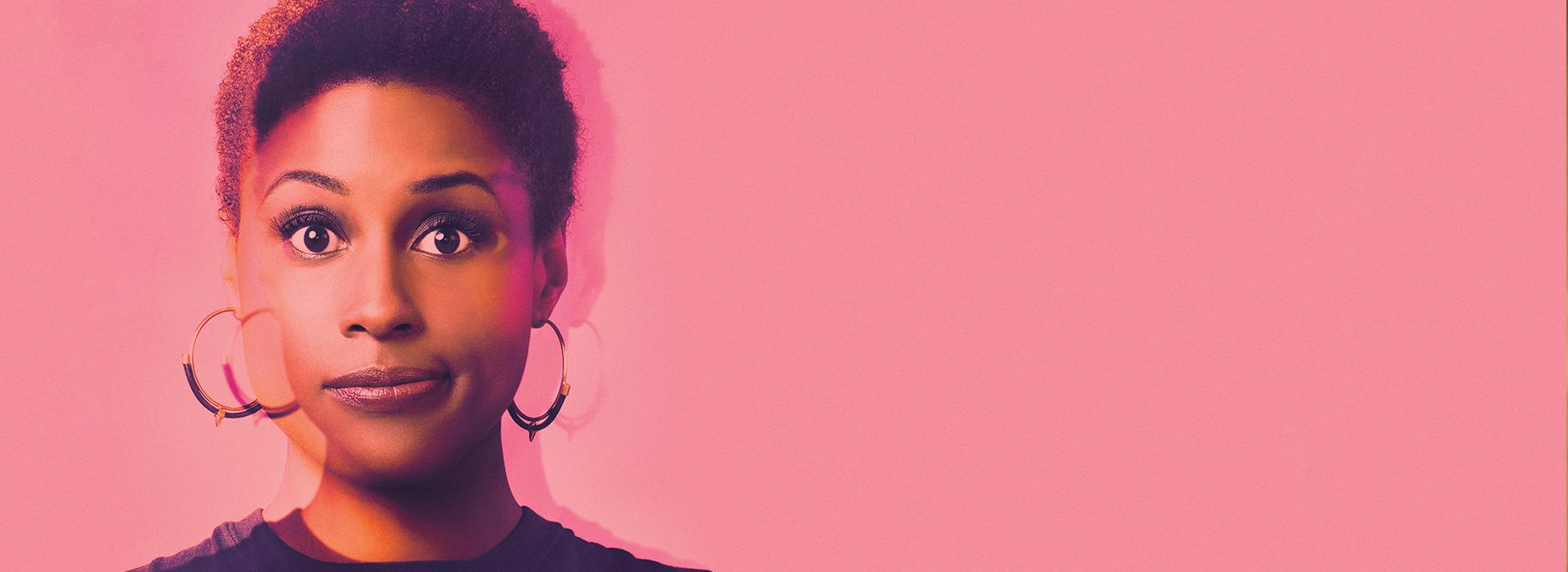
In what I’m pointing to as the first clear entry of a post-BROAD CITY world, INSECURE is refreshing and unapologetic in both its blackness and femininity. While I occasionally find the more forced hipness of BROAD CITY grating (I like WEED, GETTING HEAD, and ’90S HIP HOP), INSECURE feels far more effortless and authentic in its portrayal of Issa (the eponymous Issa Rae) and Molly (Yvonne Orji), two young black women navigating the pitfalls of life. Earning further points for moving things away from the aggressive Bohemian milieu of New York, a trap that seemingly every show about women in their 20s falls into, to a subtle and understated portrayal of L.A.’s less glamorous areas, INSECURE feels distinctly more “real” than many other shows of its ilk. While I would hazard a guess that I am not the demographic Issa Rae and Larry Wilmore set out to reach when they conceived this show, it’s all the more in INSECURE’s favor that it manages to continually be universally relatable.
As with many shows in the zeitgeist of loose, semi-improvisational comedy, INSECURE’s plot is less important than its characters and context. For the pilot, we have Issa debating whether or not to break off her plateaued relationship with longterm live-in boyfriend Lawrence (Jay Ellis). When she essentially decides to take a big, bold step forward and pursue a “what if” ex-boyfriend from college, her desires overlap with Molly, who’s looking to get over your garden variety Tinder fuckboi. After Issa curries favor with her former flame at Molly’s expense, the girls’ friendship gets thrown on the rocks.
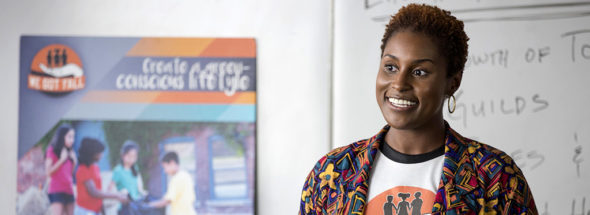
What kinda white nonsense…
I know, I know, nothing much to write home about from that plot summary, but as mentioned above, INSECURE succeeds due to the sparse narrative contrivances that allow its characters to breathe. In superb opening sequences introducing us to both Issa and Molly, we see the implicit internal conflicts both experience daily due to their identity as black women. In the only scene in the pilot featuring white people (a welcome change of pace!), Issa is shown to be clearly tokenized at her job at a nonprofit, with the standard element of white people polling her for invasive and vaguely racist queries. Meanwhile, Molly is a star at her officious corporate job, but it’s clear that she’s only managed to achieve this success through a star turn at codeswitching. In short, Issa is secure on a personal level but not on a professional level, and Molly is the exact opposite; this dichotomy of self-worth and self-realization is what contributes to the girls’ crackling dynamic, as intimately close as they are ready to argue at a moment’s notice, like all best friends are.
In addition, the show is already showing signs of not shying away from difficult topics, such as racial self-hatred coming from within the black community. It’s clear that Molly covets her status as someone who “white people love,” and regularly brags about the fact that she seems to exclusively date interracial men. In addition, when Issa brings her out for a night on the town, Molly is clearly uncomfortable rolling up to club that’s cut right out of “ʼ97 Inglewood,” wishing that the girls had gone out in a more ritzy area of LA and regularly commenting that the club is populated with “hood rats.”
Furthermore, when the show isn’t subtly unpacking complicated notions of identity, it’s focusing on female sexual politics. Issa is clearly in a romantically rewarding relationship that has gotten stale in the sack, and casually reminisces about a more experimental and transgressive sex life. Fantasizing about participating in a booty call, she ultimately decides that she has too much self-respect to go through with one in the end. Meanwhile, Molly seems to think that the only way to find personal satisfaction is through a romantic relationship comparable to the one that Issa has, struggling with the warring concepts of independence and relational security. In what is by far the standout scene of the pilot, both race and sexuality come together in a laugh-out-loud funny montage wherein Issa tries out different lipsticks and voices to see which one is most likely to land her a man at the club (“Oh my gawd, you’re a music producer? Do you know Beck?” “YOU WANT SOME OF THIS PUSSY POT PIE???”)
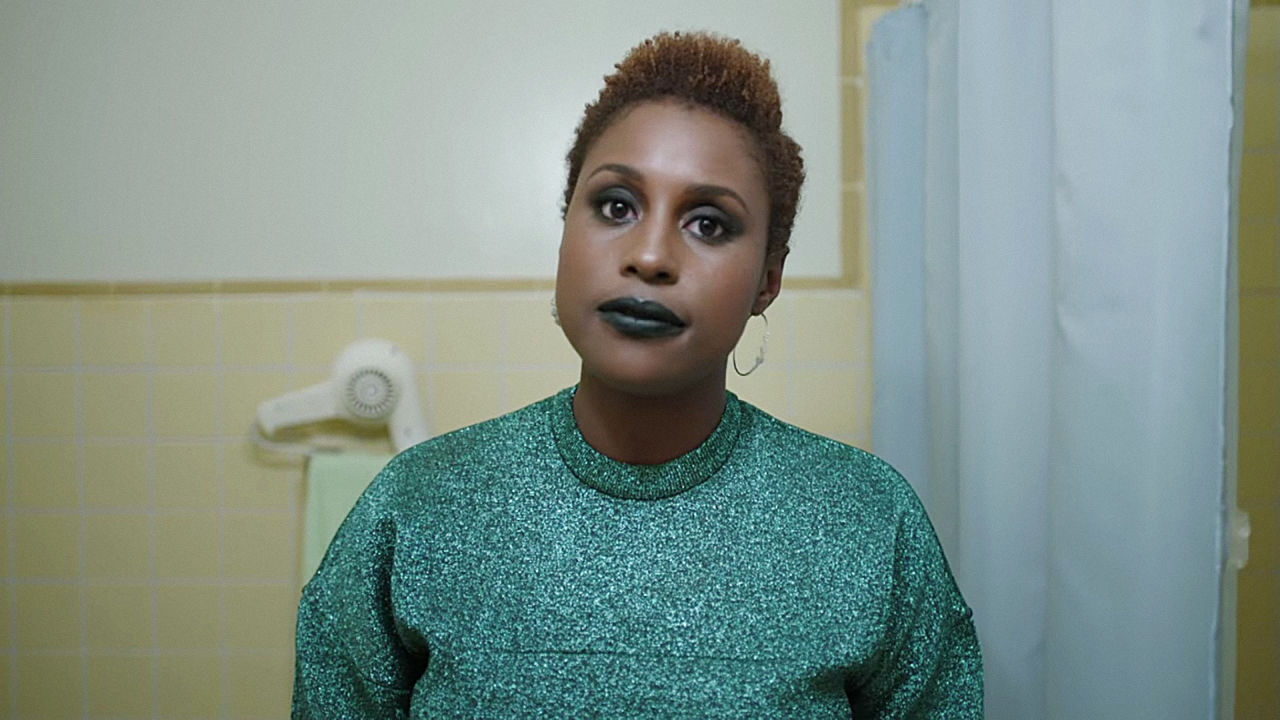
PUSSY. POT. PIE.
Now obviously, INSECURE isn’t perfect. I hate to give a man’s perspective here, but I can’t shake the fact that Issa’s treatment of Lawrence borders on the savage. While I think it’s culturally important to showcase a nuanced portrayal of black, female sexual independence, my guy Lawrence really gets the short end of the stick here. He’s shown to be loving, caring, and entirely amiable towards Issa; sure, it’s clear that he’s kind of a schlub and prefers quiet nights in, but shoot, it’s a little much to see your long term girlfriend walk out of the door dressed to the nines, with a clear intention to pick up a little action on the side. Furthermore, he never gets any closure! While Issa doesn’t end up going through with her planned infidelity, the romantic in me was rooting for her and Lawrence to reconcile.
And yes, I did occasionally find INSECURE running into “the BROAD CITY problem,” wherein dialogue is written to be so outlandishly crass and irreverent that it comes across as obnoxiously staged. I will admit that perhaps due to my subjective experience during my first 22 years on Earth I’m in the wrong here, but I just can’t imagine anybody organically talking as sexually abrasive as Issa and Molly do during a scene at an Ethiopian restaurant, regardless of the color of your skin or the nature of your genitals. During an extended monologue about Molly’s “broken pussy,” I found my interest waning, although this particular plot point does at least manage to rectify itself with a significant call back later on in the pilot. I’m not clutching my pearls over the nature of their conversation, but I am miffed that I was so abruptly yanked out of the world of story by what I found to be a clear contrivance.
Apart from that, INSECURE stands tall and proud at the end of the day. Topped off with a killer soundtrack that actually manages to feel like what young adults listen to (any show making use of Junglepussy’s “Bling Bling” is one I can get behind), INSECURE never uses its racial and sexual politics as a crutch, but rather starkly presents them and lets them develop into a tapestry that’s engaging, humorous, and thought-provoking. With a cast of male characters that are either laughably forward or entirely impotent, it’s clear that INSECURE’s energy comes from purely yonic sources, and I will loudly proclaim that as a good thing.
Verdict: Hit
INSECURE airs on Sundays on HBO


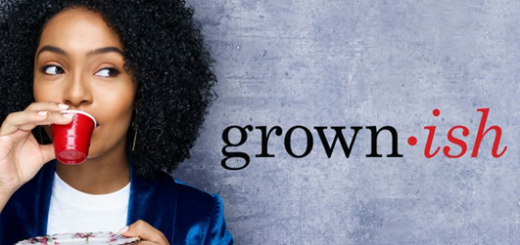
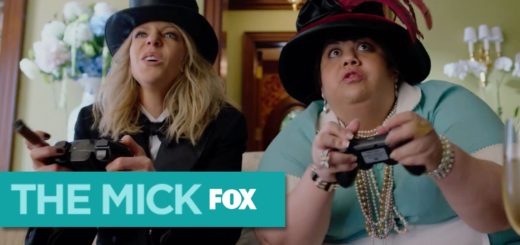
1 Response
[…] themselves while navigating the choppy waters of the professional and dating worlds. From its Season One premiere in the Fall of 2016, INSECURE set itself apart from the male-centric, high concept slab of HBO […]